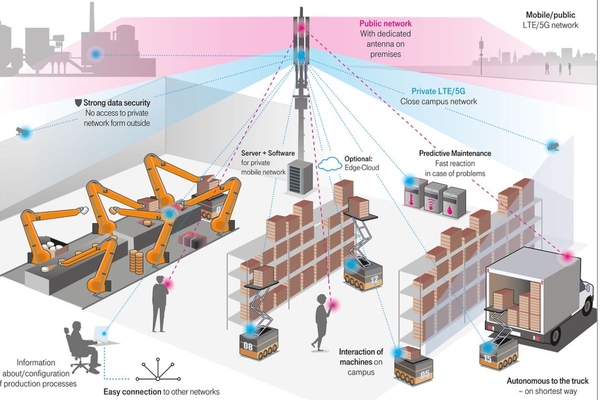Deutsche Telekom to build 5G campus network in Berlin
The Future Factory Hub will facilitate research and testing of autonomous production logistics with the goal of quickly transferring solutions based on 5G and edge computing into the real world.
Deutsche Telekom has announced it will build a 5G campus network in Berlin for the Werner-von-Siemens Centre for Industry and Science.
The research cooperation, which is supported by federal and state funds, facilitates research institutions (including TU Berlin and Fraunhofer) as well as small- and medium-sized enterprises and start-ups working on industry-related solutions for companies.
Autonomous logistics
In the 5G thematic area of the Future Factory Hub, Deutsche Telekom is building a 5G campus network where applications for autonomous production logistics are being researched and tested. The goal is to quickly transfer solutions based on 5G and edge computing into the production technology practice of companies. The project is funded by the Berlin Senate.
“We are pleased to be able to support research and development of innovative industrial solutions based on ultra-fast mobile communications and edge computing,” said Lutz Schneider, responsible for solutions for autonomous logistics at T-Systems.
“We are interested in making these modern technologies practically usable for companies, for example to speed up internal logistical processes in production.”
Deutsche Telekom reports it is already building so-called campus networks for companies. These control networked machines, robots and autonomous transport vehicles.
T-Systems, Deutsche Telekom’s corporate customer division, also provides a cloud computing solution, known as EdgAir if required. This allows data processing and analysis on site in customer’s IT environment.
“We are interested in making these modern technologies practically usable for companies, for example to speed up internal logistical processes in production”
According to the telecommunications provider, latency times for transferring data to a central cloud are eliminated – allowing innovative technologies such as edge analytics, local artificial intelligence or augmented reality and virtual reality to be realised.
Deutsche Telekom is one of the world’s leading integrated telecommunications companies, with 27 million fixed-network lines and 22 million broadband lines. It is present in more than 50 countries.




Leave A Comment